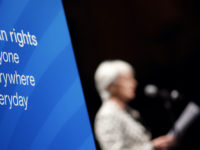The Bell website blocking coalition includes several Internet providers, but there are no smaller, independent ISPs. The absence of smaller ISPs that are essential to the government’s aspiration for greater Internet access competition is unsurprising given the costs associated with site blocking that can run into the millions of dollars with significant investments in blocking technologies and services, employee time to implement blocking mandates, and associated service issues. A mandated blocking system applied to all ISPs in Canada would have an uneven impact: larger ISPs will face new costs but may find it easier to integrate into existing systems (some already block child pornography images), whereas hundreds of smaller ISPs would face significant new costs that would affect their marketplace competitiveness. In fact, larger ISPs might ultimately benefit from higher fees passed along to subscribers and reduced competition.
 Articles by: Michael Geist
Articles by: Michael Geist
Why Fair Dealing Benefits Creators: The Case of a Room Full of Spoons
Fair dealing debates often focus on education-related issues, but its role as a user’s right extends far beyond the classroom. As part of fair dealing week, I’ll be posting on several cases that highlight the importance of fair dealing for many other purposes. For example, last year an Ontario case highlighted how fair dealing is an essential legal right for creators. The Room is a well-known film (sometimes referred to as the Citizen Kane of bad movies) that was the subject of The Disaster Artist, a film released late last year starring James Franco. In 2016, a group of documentary film makers released Room Full of Spoons, which examined the popularity of The Room.
The Case Against the Bell Coalition’s Website Blocking Plan, Part 10: Why It May Violate Human Rights Norms
The Bell coalition website blocking plan may violate more than just Canadian net neutrality rules. As currently framed, it may also violate human rights norms. Website blocking or other measures to limit access to the Internet raises obvious freedom of expression concerns that has sparked commentary from many international governmental organizations. Frank LaRue, the former U.N. Rapporteur on Freedom of Expression, was one of several experts on freedom of expression, including representatives from the Organization for Security and Co-operation in Europe, the Organization of American States, and the African Commission on Human and Peoples’ Rights, who issued a joint declaration in 2011 on freedom of expression and the Internet. It states the following on blocking:
Fair Dealing Fake News: When Seeking a Refund Arising From Copyright Over-Payments Becomes a “Legal Attack on Writers”
With the Canadian copyright review likely to commence in a few weeks, the hysteria associated with fair dealing – much of it disconnected from the economic reality of spending on copyright works since 2012 – promises to hit a fever pitch. Access Copyright and the Writers Union of Canada got off to an early start in their reaction to a lawsuit filed last week by Canadian school boards and Ministries of Education seeking a refund for years of over-payments that has cost schools more than $25 million. The groups described the lawsuit as “an outrageous attack on Canada’s writers” and “simply intimidation.”
The Case Against the Bell Coalition’s Website Blocking Plan, Part 9: Why it Violates Canadian Net Neutrality Rules
Of all the claims that accompanied the launch of the Bell coalition’s website blocking plan – piracy rates (weak evidence) and claims of harm (unsupported by the data), inferences that the absence of a court order is commonplace (it isn’t), that the blocking will be strictly limited (unlikely), and that site blocking is effective (considerable data says otherwise) – the most audacious is surely the repeated assurances that site blocking does not raise net neutrality issues. Given that the starting principle for net neutrality is the right for users to access content and applications of their choice, blocking content is prima facie a net neutrality violation.











